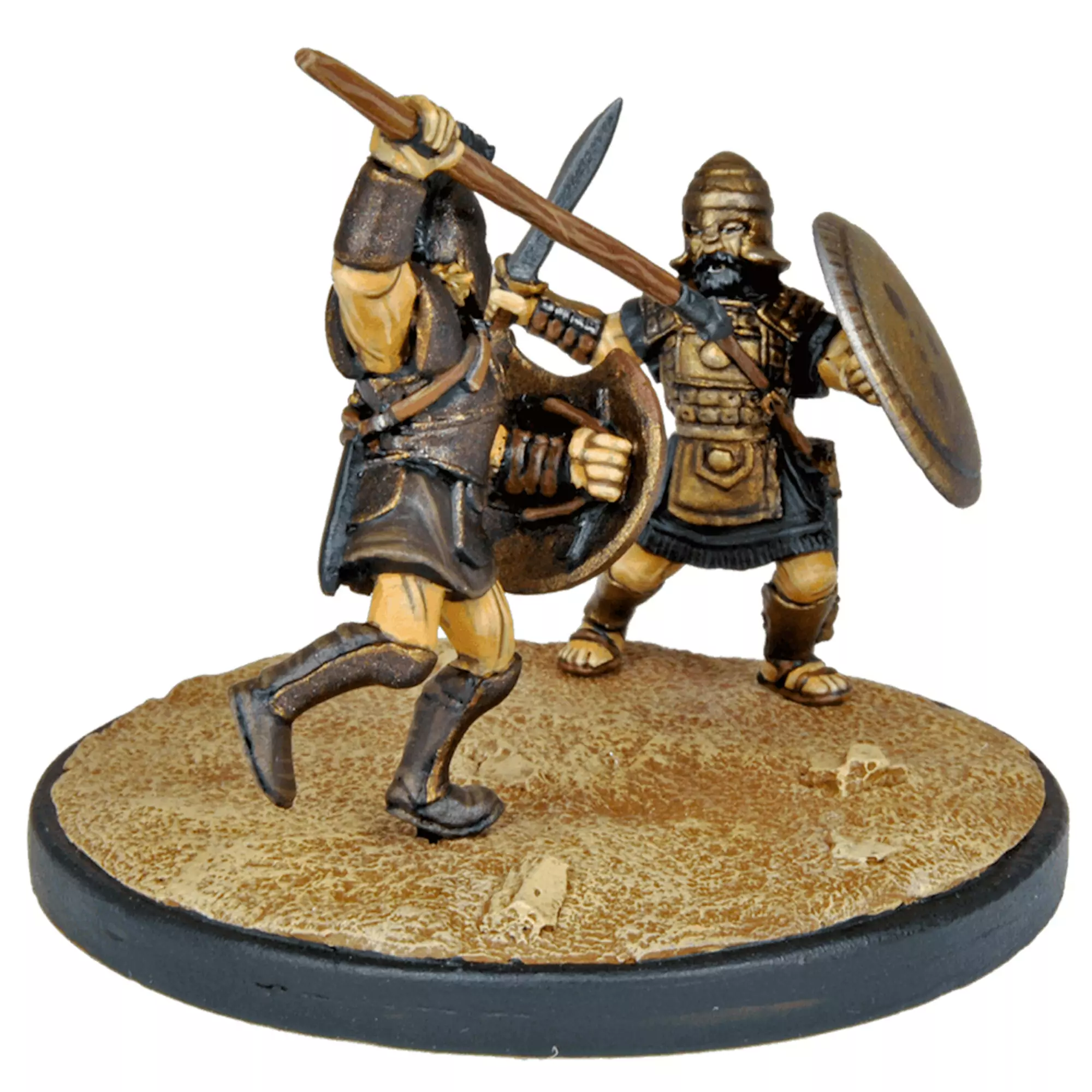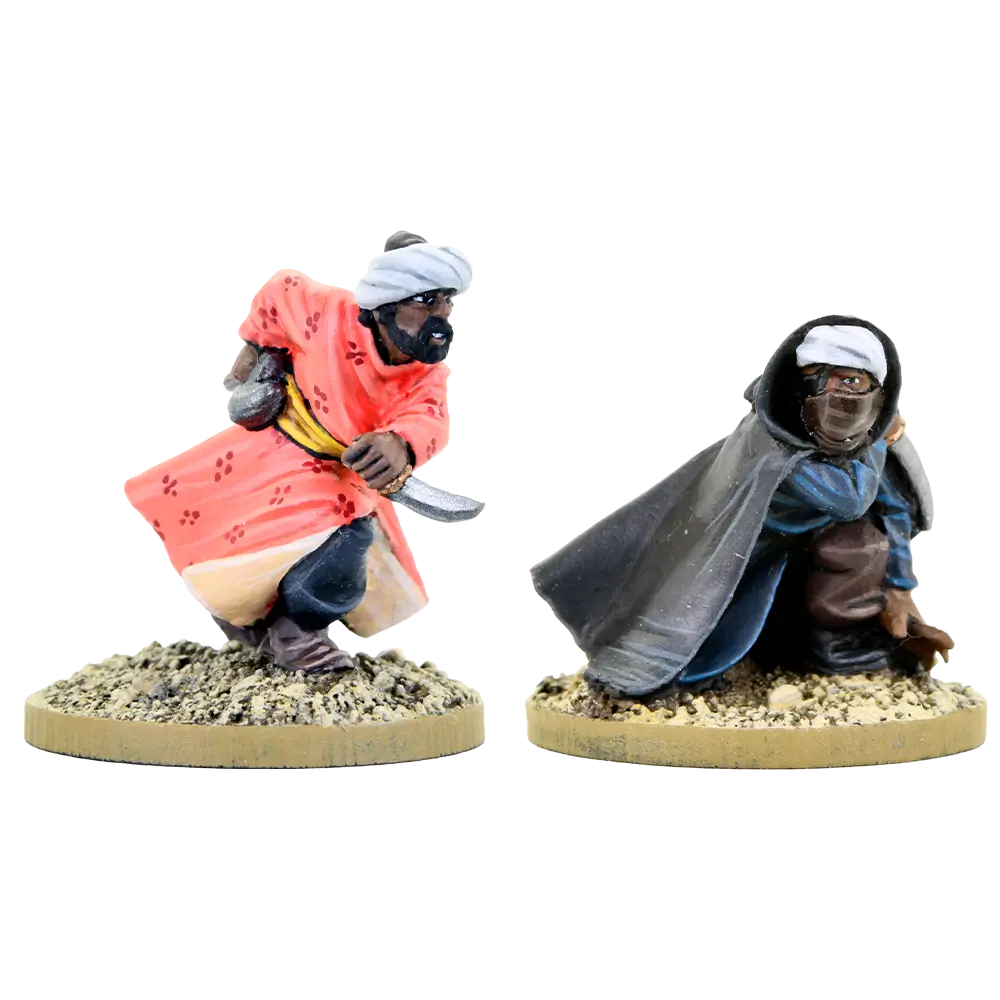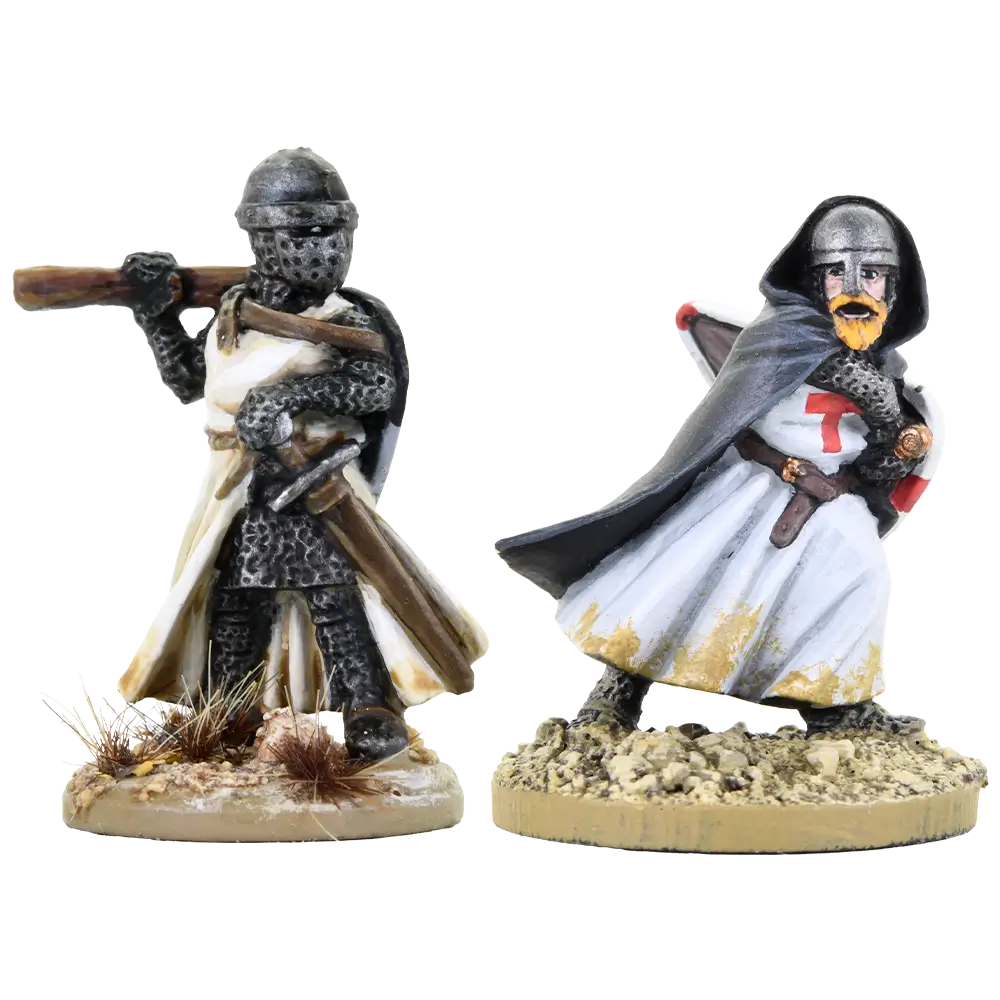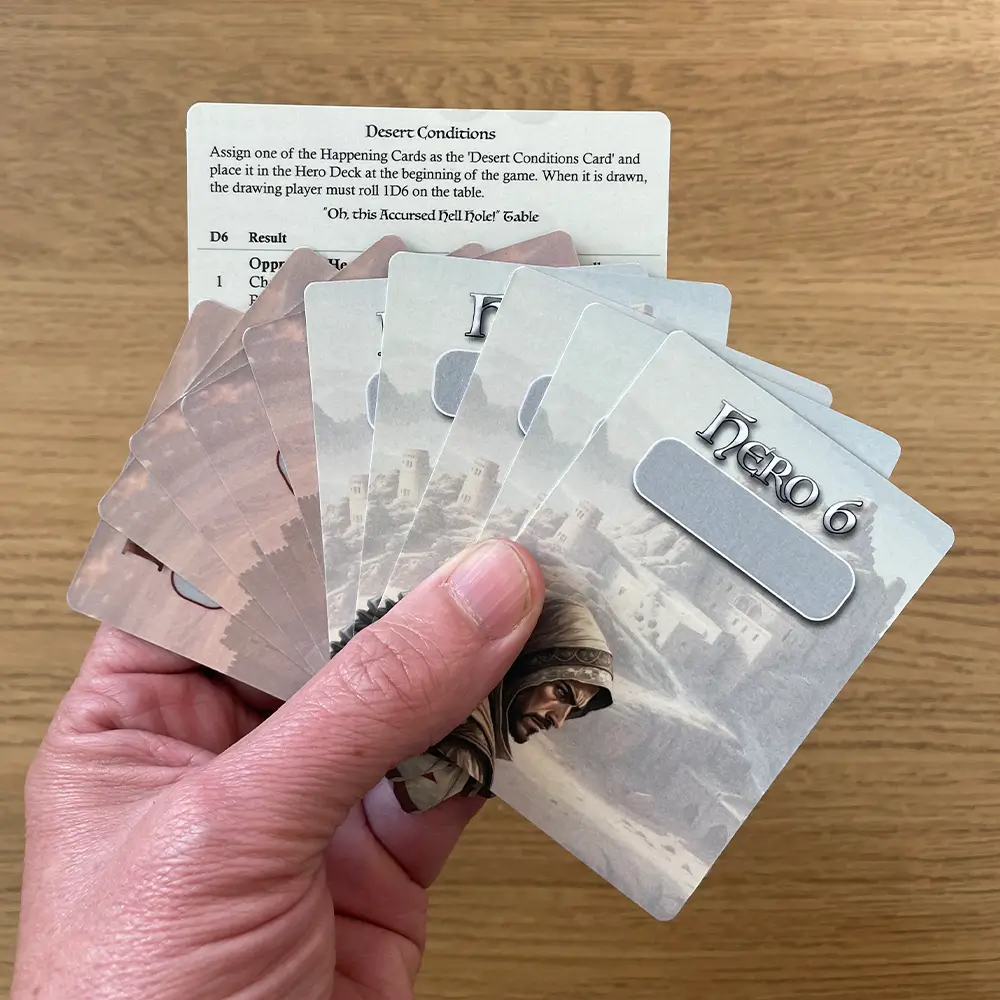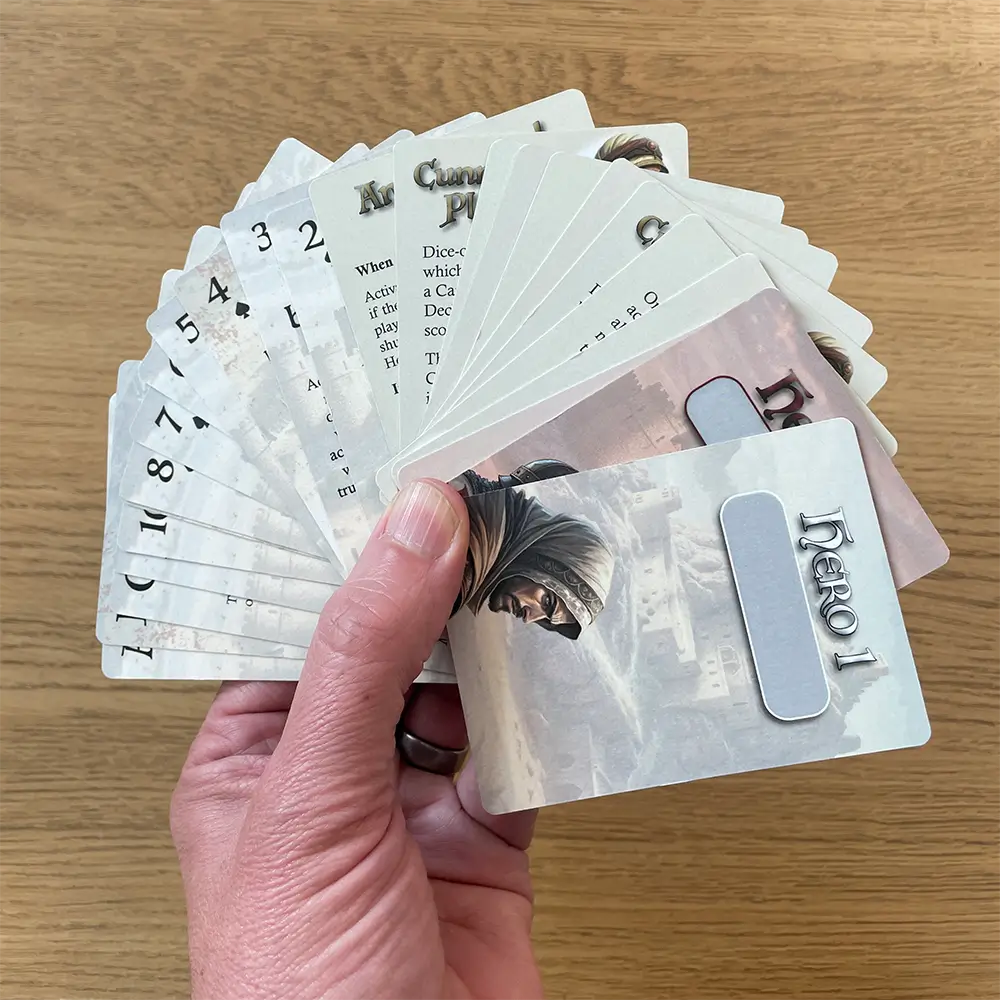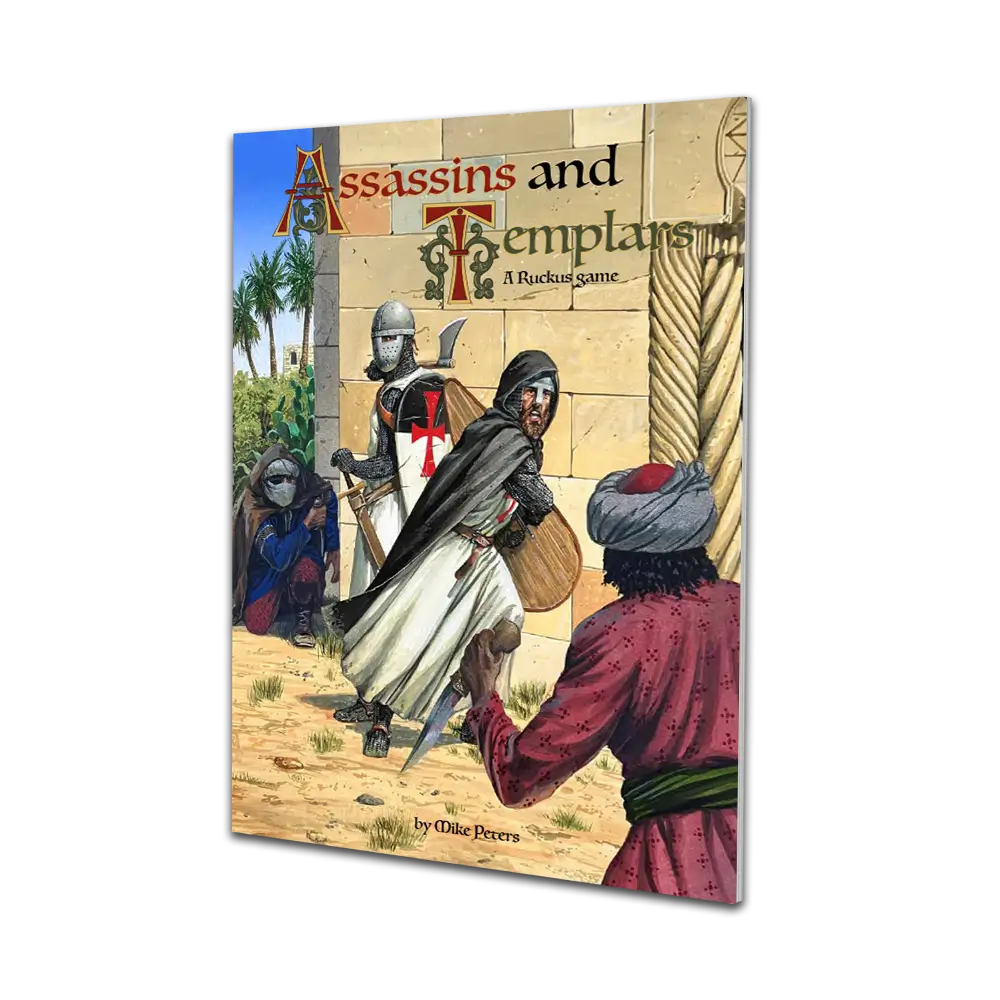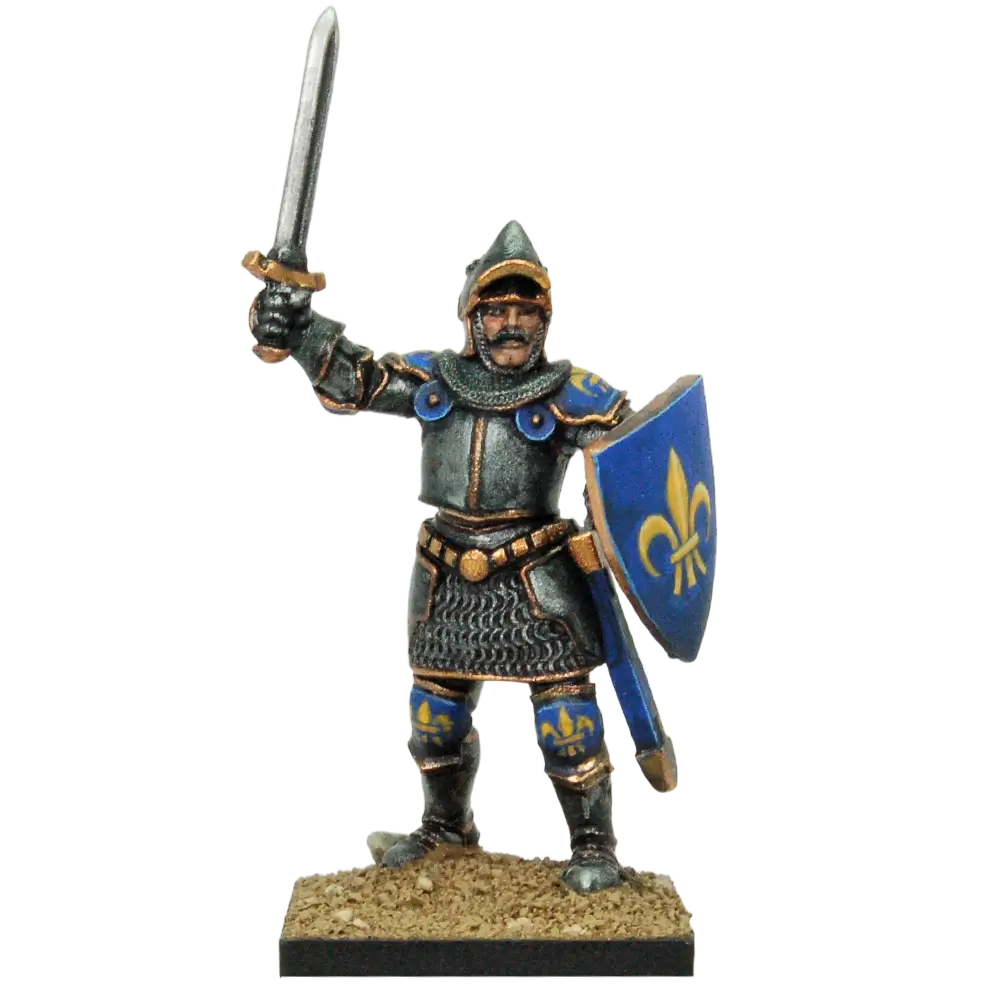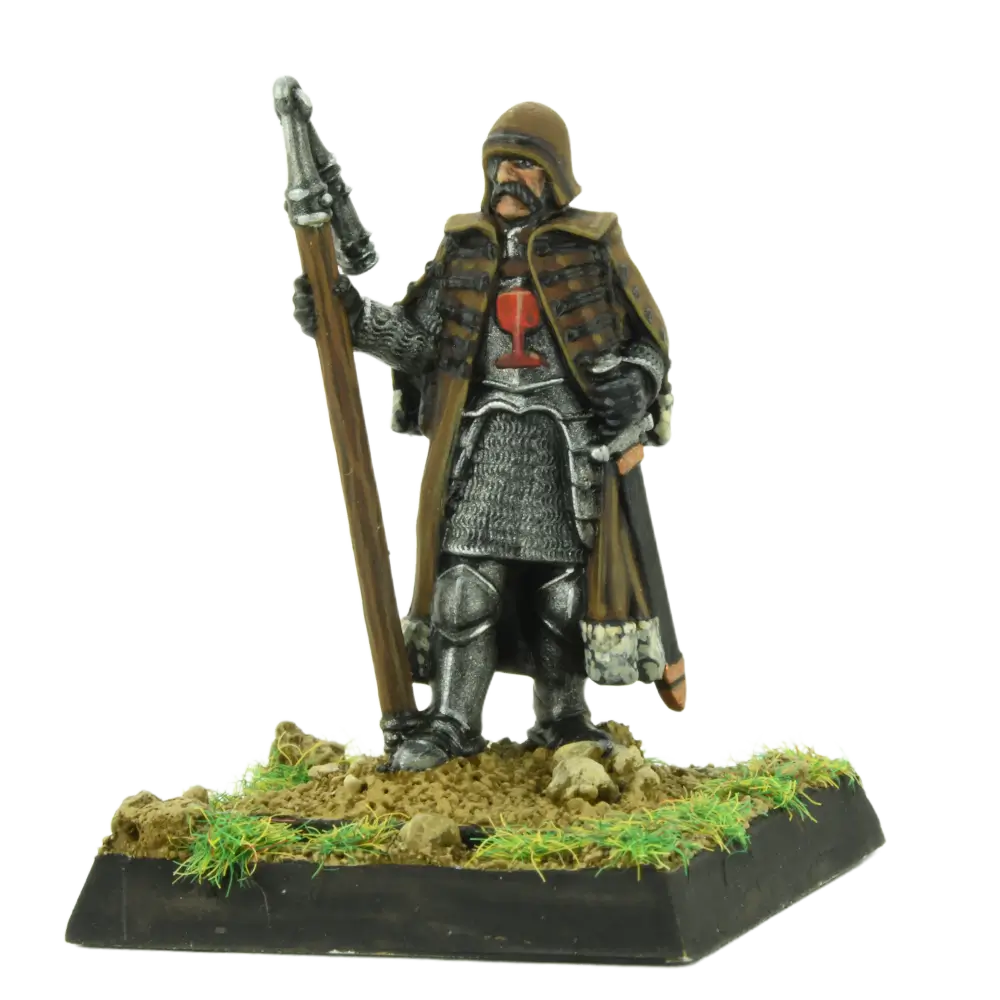Achilles vs. Hector
£5.00
As with most Hollywood blockbusters, the historical authenticity of the events portrayed in the film Troy is debatable but the imagery is great, and the inspiration for this piece comes from the one-on-one fight scene between the two great adversaries of the story. Check out a clip of the titanic battle yourself on YouTube (search for Troy).
There was an age deep in the mists of time when the gods took an active interest in the affairs of men when myth, legend, and history fused and all we are left with is the story. It was an epoch of small events writ large, and of epic heroes.
It started with Paris of Troy to whom the gods had promised Helen. The only obstacle in his way was the fact she was married to Menelaus of Sparta. The prophets warned Paris to back off, but he went anyway. Menelaus treated Paris as an honoured guest, but when he left, Paris abducted Helen and took her back to Troy where they were soon married. Menelaus was furious and organized an expedition to retrieve her. His brother Agamemnon would be in command. Unfortunately, the gods were upset with Agamemnon and becalmed the sea. The seer Calchas told Agamemnon to sacrifice his daughter and the campaign could continue. He did. Calchas also said that the venture would fail unless the great warrior Achilles went along to fight. He did, but reluctantly. The Greek expedition sailed but they could not find Troy until a turncoat promised to take them. They finally arrived at their destination only to realize that persuasion would not work and war was inevitable.
Achilles was the son of a nymph, Thetis, and a mortal, Peleus. Thetis tried to make her son invulnerable by dipping him in the River Styx held only by his heel. Thus, only a wound to his heel could kill Achilles. That should have made Achilles the Greeks’ primary asset, but Agamemnon’s overbearing manner led to an argument with Achilles, who then refused to fight. Achilles’ counterpart on the Trojan side was Hector, son of King Priam. Hector was beloved by the Trojans for his defence of the city and was also a favourite of the god Apollo. His luck would run out, however, when, with Apollo’s help, he killed Patroclus who just happened to be Achilles’ best friend. Achilles swore vengeance.
Hector did not fear Achilles despite being advised not to fight him in single combat. He waited for the Greek outside the city gates dressed in full armour and with weapons at the ready. Troy looked on in wonder. When he saw Achilles, however, Hector had second thoughts; he even thought about handing over Helen. Achilles was not there for Helen any more, though, and Hector knew that. He also could not face the ridicule if he walked back through the city gates after ducking the fight. Hector did the next best thing; he ran for it. Achilles set off in pursuit, the two men circling the city three times without Achilles closing the gap. Then the gods intervened.
The goddess Athena wants to help Achilles, and Zeus, the patriarch of the gods, finally relents. Athena appears to Achilles first and tells him to stop running and turn to wait for Hector. She next goes to Hector disguised as his brother, Deiphobus and persuades Hector that they should fight Achilles together. Hector agrees and squares up to Achilles. The Greek throws his spear at Hector who ducks. Hector does not see Athena giving Achilles his spear back. Hector throws his spear that bounces off Achilles’ shield, Hector now believes he has the edge and turns to get his brother’s spear, but, of course, Deiphobus has gone. Hector recognizes the ruse but draws his sword to fight at close quarters; Achilles clutches his spear in readiness. Hector swings his sword, but Achilles knows the weak point in Hector’s armour. He stabs Hector in the neck and the Trojan falls to his knees, his life flowing from his wound. Hector curses Achilles who in return promises to leave Hector’s corpse to the dogs. The Trojan falls into the dust, dead. The Greek ties Hector’s body to his chariot and drags it behind as a show to the Trojans, and perhaps the gods.
Ordering from outside the UK?
We welcome magazine subscriptions and WiPrime membership orders from outside the United Kingdom – please order via our webstore. Digital/PDF products are also available to purchase and download here.
Our other products: Giants in Miniatures, games, physical magazines, and anything else that requires shipping, should be ordered from our distribution partner North Star Military Figures. You will find all Wi products on their website.
Featured and Discounted Products
Browse the most recent releases in the Wi webstore.

